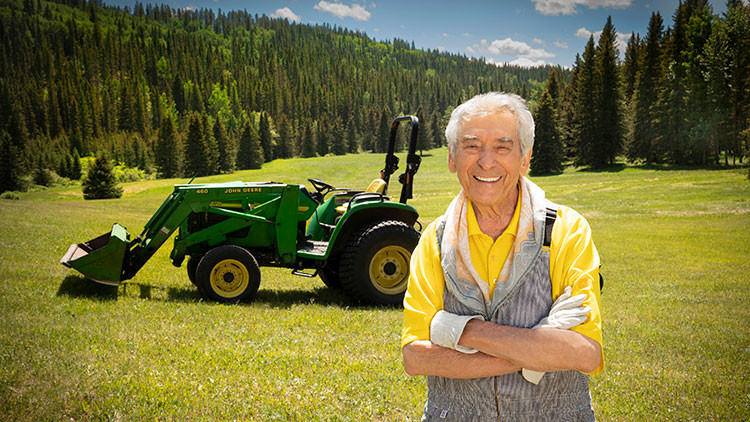Government mail service may be affected by the Canada Post labour disruption. Learn about how critical government mail will be handled.

“I would not call myself a serial innovator. I think I’m a serial problem solver. I have had a couple dozen successful innovations, but the ideas came from solving problems. I like my job at CETAC-WEST because that’s what we do. We solve problems for entrepreneurs who are trying to start companies.”
Joe Lukacs of Calgary has dedicated his 60-year career as an entrepreneur, engineer, business executive and mentor to achieving cleaner air for Alberta, a benefit that has spread worldwide. Throughout his career, he has directly and indirectly improved the efficiency of Alberta’s industries and the health of the environment.
Joseph Lukacs was born on March 22, 1934, in Újvárfalva, Hungary, to John and Teresa Lukacs, farmers trying to make a living on a tiny piece of his mother’s land that produced little. Joe and his older brother Karol helped on the farm as soon as they were old enough to walk. When Joe was four, his father packed up the family and moved to the next village, Somogysárd, where he bargained with the rich local landlord to get a slightly larger and better piece of land on credit. He then proceeded to borrow against the land to buy a new thrashing machine. It was Joe’s first lesson in entrepreneurial thinking.
Initially not a fan of school, Joe grew to love and excel at it, especially physics. “I had a Jesuit physics teacher. He would give us an assignment at the end of each day to solve by the next morning. I was very often the only one who solved the problem,” says Joe. Dreaming of becoming a physicist, he was accepted to the Technical University of Budapest in 1953, but his world collapsed a week later when he was thrown out, because he had not declared that his parents were kulaks (a label Stalin used to target peasants who owned land and machinery). With the help of friends, Joe escaped being sent to a work camp and found a job as a mine worker. In 1954, claiming he was an orphan, he was accepted at the University of Miskolc to study mining engineering.
Joe did well at university, earning the opportunity to upgrade to petroleum engineering in his third year. That summer, he met a young lady, Helen, while attending a company dance on campus. She mesmerized him but he lost her in the crowd. They would meet again by chance the following New Year’s Eve.
For the fall semester of 1956, Joe and his small petroleum engineering class transferred to the University of Sopron, bordering Austria. The Hungarian Revolution began on October 23, only to be crushed by Russia 12 days later. Joe and his class, together with the forestry engineering faculty and students, walked across the border to Austria when the Russian tanks rolled into Hungary. Several countries were ready to welcome such a powerhouse of 400 well-educated refugees. With a promise from Canada that he could bring his fiancée with him, Joe saw a glimmer of hope. But he would have to venture back deep into Hungary to find Helen. Their journey across Hungary and escape to Austria were harrowing and life-threatening.
The group arrived in Canada aboard the Columbia at Pier 21 in Halifax on January 15, 1957. Helen and Joe were proudly wed the next month at the Hungarian church in Toronto. Joe’s future mentor, Trajan Nitescu was the president of Canadian Fina in Calgary. Himself a Romanian refugee, Mr. Nitescu picked Joe’s name out of the list of Hungarian refugees and offered him a job and train tickets to Calgary.
Joe’s first job was in Redwater clearing a right-of-way access of poplar trees with an axe by himself for an entire summer. Helen needed to find a place to stay and work. She humbly found a housekeeping job in Edmonton. Joe’s hard work so impressed his foreman that Mr. Nitescu himself heard about it, earning Joe a four-year scholarship, enabling Joe and Helen to rent a home in Edmonton and start their family.
One Saturday, Joe hitchhiked to the University of Alberta, looking for the engineering department. By chance, he ran into the Dean of Engineering, who agreed to let Joe enroll in third-year engineering rather than re-do his second year, provided Joe passed the English exam. Joe finished at the top of his class in consecutive years and, in 1959, graduated with his Bachelor of Petroleum Engineering Degree. “The University of Alberta was a very large part of my being able to succeed in Canada,” he says.
Alberta was one of the first jurisdictions in the world with air quality regulations. Joe’s career would be a response to these standards and, in some cases, the cause of them. After working at Canadian Fina’s crucial pilot gas plant in Windfall, Joe returned to university specifically to address challenges at the plant, which was processing gas with higher concentrations of hydrogen sulphide – the cause of acid rain – than the industry had previously dealt with. After completing his master’s degree in record time, Joe returned to Canadian Fina to implement what he’d learned.
In 1965, oil and gas consultant Rod McDaniel convinced Joe they could build an innovative company applying the unknown field of computing to oil and gas processing. Joe quit his job at Canadian Fina and took a significant pay cut to co-found a new company called Western Research and Development, despite having a wife and three young children at home: Zoltan, Attila and Joe Jr. He taught himself coding and created technical engineering computer programs. Things went well for about three years until IBM began offering the same programs for free.
In 1971, Joe and Rod sold Western R&D to Bow Valley Industries, with Joe staying on as president. Soon, Joe found another industry problem to tackle. Alberta’s regulations for gas plant stacks required emissions to be tested regularly, but it wasn’t happening because no one wanted to climb the stacks that rose to 300 feet. Joe and his team took it on, climbing stacks in all types of Alberta weather to capture samples and measure flow.
Test results showed that no plants reached the regulated level of sulphur recovery. This set the stage for Joe’s next endeavour as his team created two breakthrough instruments. First came a continuous stack emission monitor. Second came the holy grail of gas processing – a closed-loop analyzer that could continuously analyze and control plant performance.
Alberta gas plants started recovering over 99% of the sulphur in their gas and Alberta became a model of environmental efficiency for the world. Joe’s team produced the first and only textbook on the process and started offering seminars to share their knowledge. Soon, his team was known as the “sulphur doctors” and worked anywhere in the world that had sour gas. By 1990, Western R&D transformed regional success into being the world’s dominant sulphur species analyzer and technology provider. Eventually, 50 countries adopted Western R&D’s approaches and systems. His work positioned Alberta internationally as the having cleanest sour gas plants and having the technical expertise and problem-solving abilities to tackle large environmental issues.
Joe was heavily involved in the prestigious International Air Pollution Control Association (later renamed the Air and Waste Management Association). He served the AWMA for over 50 years as director, vice-president and president-elect, becoming an internationally respected leader in industrial pollution control. To say that Joe has had a positive impact on the global environment is simple fact.
In 1994, Environment Canada established a national initiative to help small- to medium-sized enterprises commercialize environmental technologies. The initiative consisted of three private-sector, not-for-profit corporations called Canadian Environmental Technology Advancement Centres (CETAC). Located in Calgary, CETAC-WEST discovered its ideal founding president and CEO in Joe Lukacs.
Thanks to Joe’s entrepreneurial passion and skills, CETAC-WEST has become a multi-faceted organization that offers business assessments, an annual entrepreneur-to-CEO workshop, a strong and dedicated group of alumni mentors, funding and financing support, and team mentoring programs. Entrepreneurs credit CETAC with creating thousands of jobs and generating millions in wages and hundreds of millions in revenues.
Joe has earned numerous awards and recognitions, including multiple awards from the AWMA and the Association of Professional Engineers and Geologists of Alberta. The National Research Council, Canadian Armed Forces and the University of Calgary’s International Centre have also recognized him for his contributions to the nation. In 2022, Joe received the Queen Elizabeth II’s Platinum Jubilee Medal (Alberta).
Sadly, Helen passed away in October 2022. Joe wishes to acknowledge Helen’s vital role and partnership in supporting all his efforts to create a cleaner environment and a better world. She is deeply missed by Joe, his three boys, five grandchildren and three great-grandchildren.
